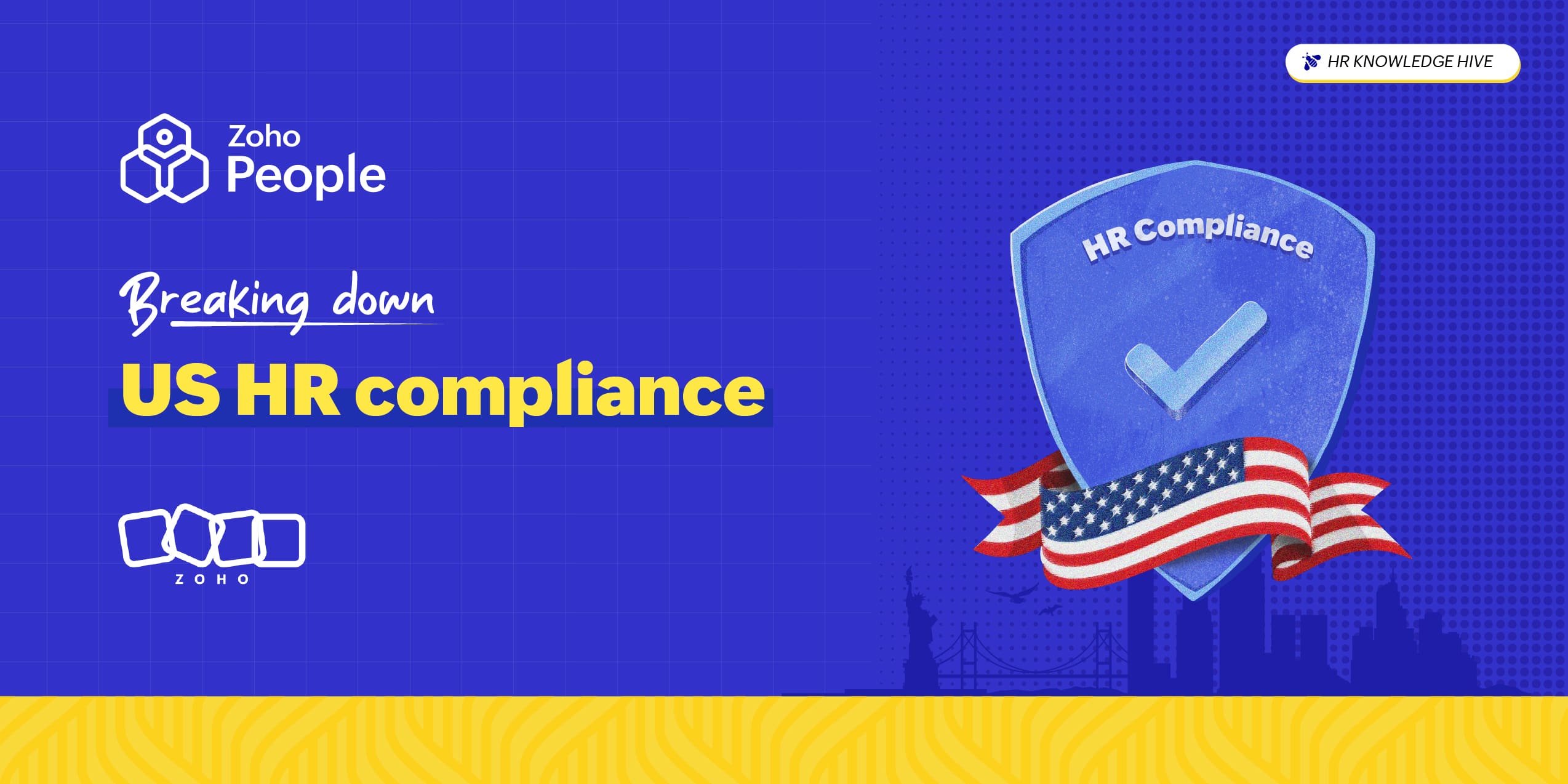- HOME
- HR insights
- Everything you need to know about employee compensation and benefits
Everything you need to know about employee compensation and benefits
- Last Updated : August 23, 2023
- 5.1K Views
- 5 Min Read

At a time when employees are quitting organizations at record rates, developing a competitive compensation and benefits package is vital to attract and retain top talent. Compensation and benefits are two of the most important factors that influence an employee's decision to work for your organization. No employee wants to work in a place where their value is underestimated and they are underpaid for the hard work they put in. If you are wondering how to provide the right pay and perks for your employees, we've got your back. In this article, we break down the basics of employee compensation and benefits:
Defining compensation vs benefits
Before getting into the nuances of compensation and benefits, it's essential to understand the differences between both of these terms. Compensation usually refers to the monetary incentives that are provided directly to an employee for the efforts they put in toward their organization's success. Compensation includes regular salaries, overtime pay, bonuses, cash rewards, commissions, and other financial incentives your employees receive. Benefits, on the other hand, refers to all the non-monetary incentives that are provided to employees as part of their work agreements, such as health insurance, child care, time off, retirement plans, wellness initiatives, and more. While these may have a financial component (401ks, for example), this is not money that is being paid directly to your employees for the work they do. Instead, benefits focus on adding value to employees outside of their regular compensation.
Why are employee compensation and benefits important?
Having a comprehensive and appealing compensation and benefits package is crucial to keeping your workforce motivated. With a great strategy outlined in your business, here are just four of the benefits you can expect to see:
Improve employee retention rate
Most of the time, employees would decide to move on to another organization when they don't see themselves getting ahead in their career monetarily. But it's important to remember that looking for new jobs and interviewing for different roles are usually stressful activities. If their pay is competitive and employees feel secure in their organization and career trajectory, they are much less likely to put themselves through the hassle of jumping into brand new work environments. They would want to continue with their organization as long as those great paychecks or perks are not trying to make up for terrible work-life balance or a toxic work culture.
Boost your corporate image
Providing competitive compensation and benefits shows your organization upholds a people-first mindset—that you believe in paying employees what they truly deserve, without taking advantage of their hard work and paying them less to improve organizational success. This fosters a positive perception of your organization among your candidates, employees, and customers.
Keep employees engaged and loyal
Employee compensation and benefits are two of the largest and most important expenses an organization incurs, and that's not a secret to employees. That's why receiving the right remuneration for their hard work makes employees feel valued and reiterates the fact that they've been doing worthwhile work. There are plenty of examples of companies that don't offer competitive pay or benefits, so seeing that your organization prioritizes this despite the expense lowers turnover, improves motivation, and encourages employees to give back in the form of loyalty and referrals.
Increase employee productivity
Because proper compensation and benefits boost positivity among your staff, prevent performance anxiety, and increase motivation, employees will go out of their way to bring out their best efforts for your organization.
How to get employee compensation and benefits right?
Developing a competitive compensation and benefits package is equally beneficial to your organization as it is to your employees, considering the impact it has on the areas discussed above. If you're having a tough time deciding where to start, here are five tips that'll help your organization fairly compensate its employees:
Analyze what factors determine compensation
What factors do you currently prioritize when determining pay? Some common ones would be skills, experience, type of work, hierarchy, or geographical location. But be careful on relying too heavily on seniority or credentials to determine pay ranges; compensate employees based on the work they do and what skills or traits they bring to the table. That will play a much larger role in the success of your organization in the long run. It's also a good idea to have a discussion with your C-level leaders and the finance team to determine the maximum salary range and benefits for a particular position based on how your organization is performing. This will definitely help your organization ensure fair compensation for each of your employees.
Research your competitors
In order to make sure you don't lose your top talent and candidates due to low salaries, it's important to understand what your competitors from the same geographical location are offering. Job review websites can be super helpful in gaining insights into what a competitive salary for your region looks like. If you are able to match them, that's fantastic! However, sometimes you may not be able to match the salary or benefits due to a number of fair reasons. During such times, you can focus on strengthening non-monetary benefits like work-life balance, flexible working options, growth opportunities, and more. Or if you can add better-than-average perks on top of slightly lower salary, that can still be enticing to a lot of employees.
Talk to your employees and candidates
During the interview, talk to your candidates to understand what they expect in terms of compensation. In case it's high, give them a solid reason why you will not be able to offer what they ask for and explain why you think what you offer is competitive and fair. Promise a nice hike after making their probation period only if you plan on actually giving it to them. During the discussion, try to understand the kind of benefits they expect, too. Knowing what job seekers want is key to boosting your employer brand. Follow the same notion with your existing employees during each performance review as well. Your organization's benefits package will work only when it is in line with your employees' expectations.
Address inequality issues, if any
Compensation inequality can shatter your workforce's morale and force them to move on to better opportunities. It can also have a hugely negative impact on your corporate image. For example, if you feel there's a gender wage gap at your organization, analyze the experience levels of your employees, what their job responsibilities are, and the impact their work has on your organizational success. Increasing the minimum wage and bringing in pay transparency can really help in reducing gender pay gaps or other unconscious bias that may be plaguing your salary practices.
Wrapping up
Your compensation and benefits package is one of the most important things that influences your employees' decision to stay at your organization. Making it comprehensive and attractive is super important to help your employees get ahead in their careers and enable them to grow your business's success. We hope this blog gave you some useful insight for improving your pay strategies to compete in the current labor market, or for creating a compensation and benefits package for the first time.
 Tarika
TarikaContent Specialist at Zoho People


